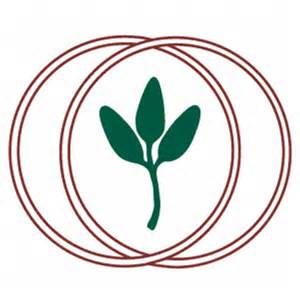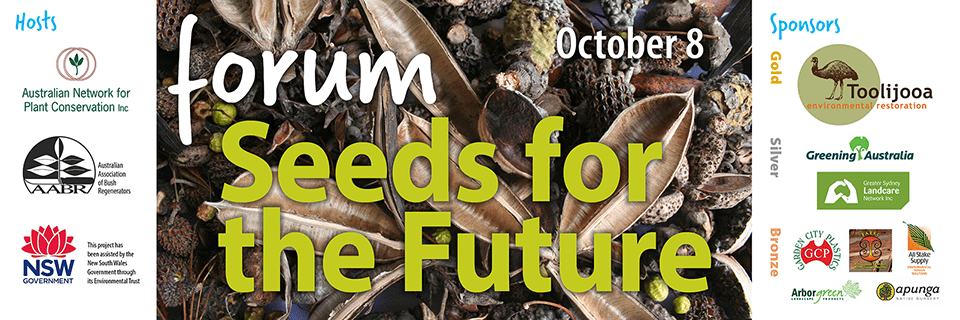Communique from the NSW restoration industry
AABR / ANPC – ‘Seeds for the Future’ Forum –
Oct 8, 2019, Sydney, Teacher’s Federation Auditorium
The ecological restoration industry is small but critical to the future of biodiverse native ecosystems in Australia, ecosystems that are essential to our nation’s clean water, functional soils and carbon capture and storage. Great strides have been made in developing successful methodologies for restoring complex ecosystems using a combination of assisted regeneration and reconstruction techniques.
Barriers exist, however, to the necessary expansion of the industry if it is to make a difference to biodiversity conservation. One critical barrier is the time lag required to collect and supply the seed required for restoration which is almost always longer than the short lead times for funding contracts. A second barrier is the wildly fluctuating demand for seed due to either dry years or the chance occurrence of large developments which impacts on the viability of many organisations or operators.
There is a need for more sustained drivers for the seed and restoration industry. Market demand needs to reach a larger scale to make it economically viable for suppliers to risk investment in seed collection and storage or cultivated seed production. Investment in seed production is required to reduce pressure from harvest from self-sustaining natural systems, increasing harvest volumes and efficiencies and managing genetic diversity of supply.
The primary current driver for restoration is for work required as a result of development consents (e.g., mining and urban development). More ambitious incentives for diverse ecosystem restoration for its own sake are required, as well as the necessary planning to ensure investment in appropriate physical and organisational infrastructure.
The Forum calls upon State and Federal governments to direct incentive funding to biodiversity restoration and the infrastructure required to support it, whether solely for conservation, as a co-benefit for developing more sustainable farming systems, better managed transport corridors, meeting carbon emission reductions, soil and water security or generating employment and community wellbeing.
With the increase in demand for restoration will come drivers for improvements to restoration training, native seed collection permitting and regulation, increased development of seed production farms and the establishment of standards for high quality seed supply.
As bureaucratic barriers to these improvements exist, the Forum calls upon agencies at all levels of government across Australia to work with industry and non-profit restoration organisations to streamline solutions in these areas.
Find out more about the Forum and download the program here.

